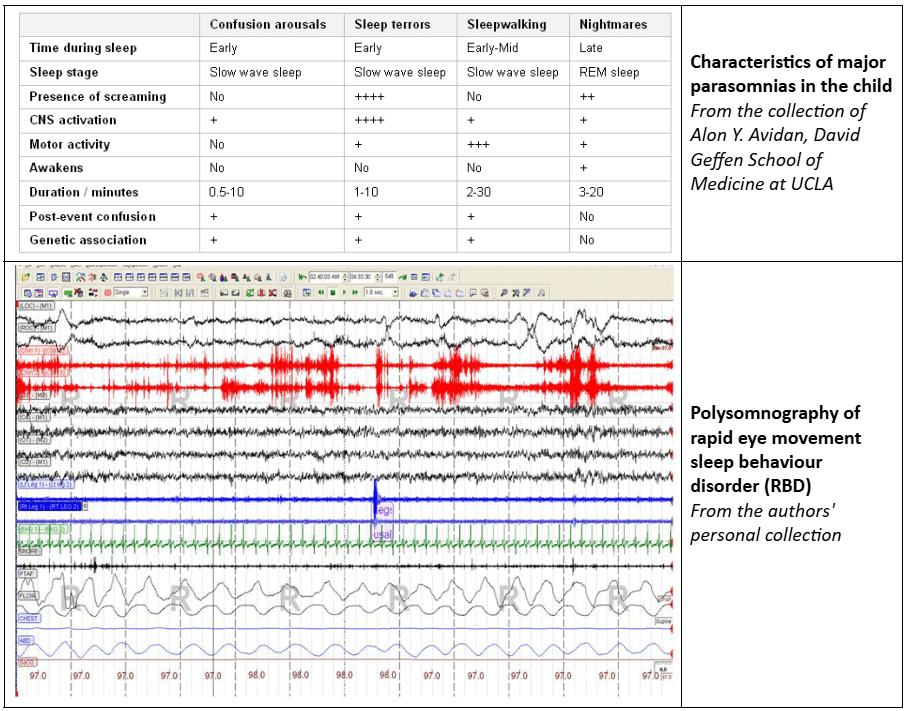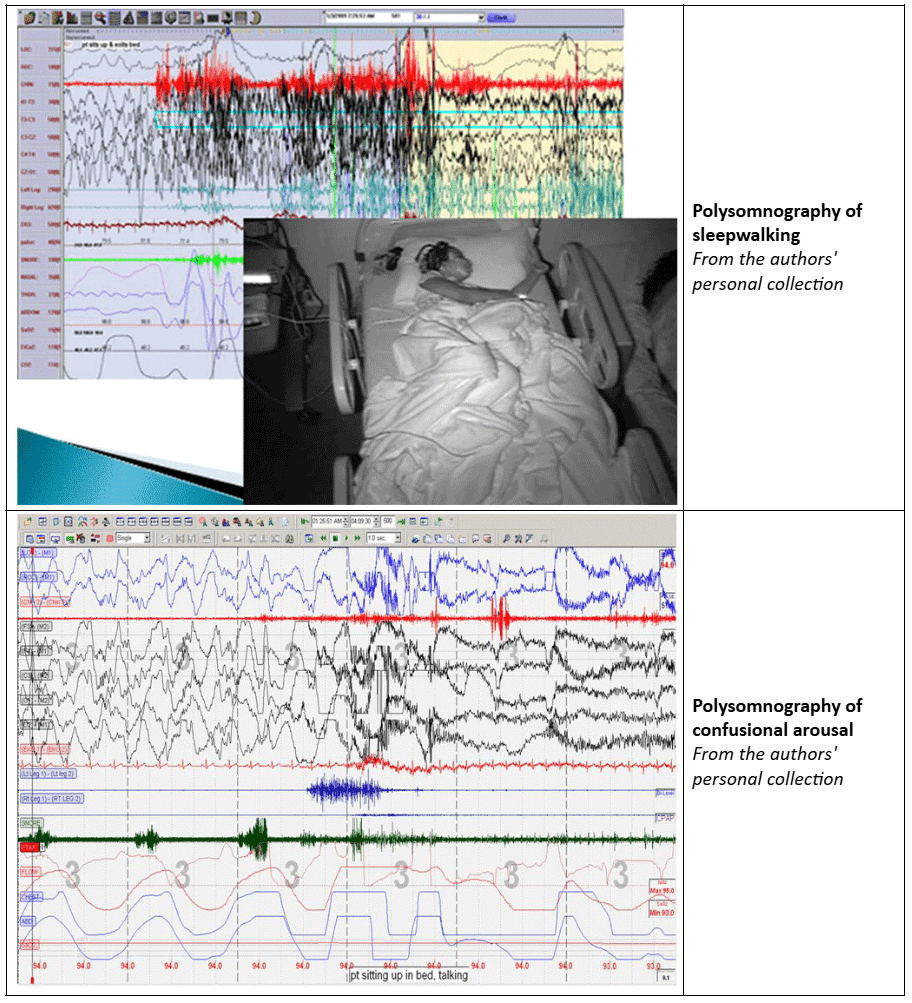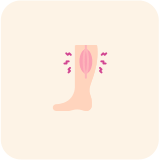Summary
Parasomnias are sleep disorders that involve unusual movements, behaviors, emotions, or autonomic activity during sleep or transitions between sleep and wakefulness. They are common in children and usually harmless, but they can be distressing or disruptive to sleep.
There are two main types of parasomnias:
- Non-Rapid Eye Movement (NREM) Parasomnias – Occur in the first half of the night and include sleepwalking, night terrors, and confusional arousals.
- Rapid Eye Movement (REM) Parasomnias – Occur later in the night and include nightmares, sleep paralysis, and REM sleep behavior disorder (RBD) (which is rare in children).
Most childhood parasomnias resolve on their own, but sleep deprivation, restless legs syndrome, and obstructive sleep apnea can trigger or worsen symptoms. Addressing these underlying causes can help reduce episodes.
Diagnosis and When to Seek Help
Parasomnias are usually diagnosed based on parent or caregiver observations. Parents should consult a doctor if their child:
- Has frequent or severe parasomnia episodes that disrupt sleep.
- Shows signs of excessive daytime sleepiness, behavioral issues, or difficulty focusing.
- Sleepwalks in a way that poses a safety risk.
- Has additional symptoms such as snoring or pauses in breathing during sleep, which could indicate an underlying sleep disorder like obstructive sleep apnea.
A sleep study (polysomnography) may be recommended if another sleep disorder is suspected.
Management and Prevention
Most cases of parasomnia do not require medical treatment and improve with good sleep habits and a safe sleep environment.
- Ensure Enough Sleep – Maintain a consistent bedtime routine to prevent sleep deprivation, a common trigger.
- Create a Safe Sleep Space – Remove sharp or dangerous objects, lock doors and windows, and use safety gates if needed.
- Avoid Triggers – Reduce stress, limit caffeine and sugar before bed, and create a calm nighttime routine.
- Do Not Wake the Child During an Episode – Gently guide them back to bed if necessary, but avoid trying to wake them forcefully.
In rare cases where parasomnias are severe or persistent, medications may be considered under a doctor’s guidance.
Follow-Up and Monitoring
- Keep a sleep diary to track episodes and potential triggers.
- Ensure a safe environment to prevent injuries.
- Seek medical advice if episodes become more frequent, disruptive, or concerning.
With proper management, most children outgrow parasomnias, and families can take steps to ensure restful, safe sleep.


History and Exam
Key diagnostic factor
- Presence of risk factors
- Disturbed cognition during event (confusional arousals, sleep terrors, sleepwalking)
- Vigorous activity or violent behaviour (confusional arousals, sleepwalking, sleep terrors, and rapid eye movement sleep behaviour disorder [RBD])
- Episodes of inability to move (isolated recurrent sleep paralysis)
Other diagnostic factors
- Abnormal demeanour and facial expression (confusional arousals, sleepwalking, sleep terrors)
- Evidence of injuries
Risk factors
- Family history of non-rapid eye movement (NREM) parasomnias (confusional arousals, sleepwalkling, sleep terrors)
- Presence of HLA gene DQB1*04 alleles (sleepwalking)
- Medication or alcohol
- History of psychiatric disorder
Diagnostic Investigations
1st investigations to order
- Clinical examination
- Polysomnography (rapid eye movement sleep behaviour disorder)
Investigations to consider
- Polysomnography (confusional arousals)
- Polysomnography (sleepwalking )
- Polysomnography (sleep terrors)
- Polysomnography (nightmare disorder)



